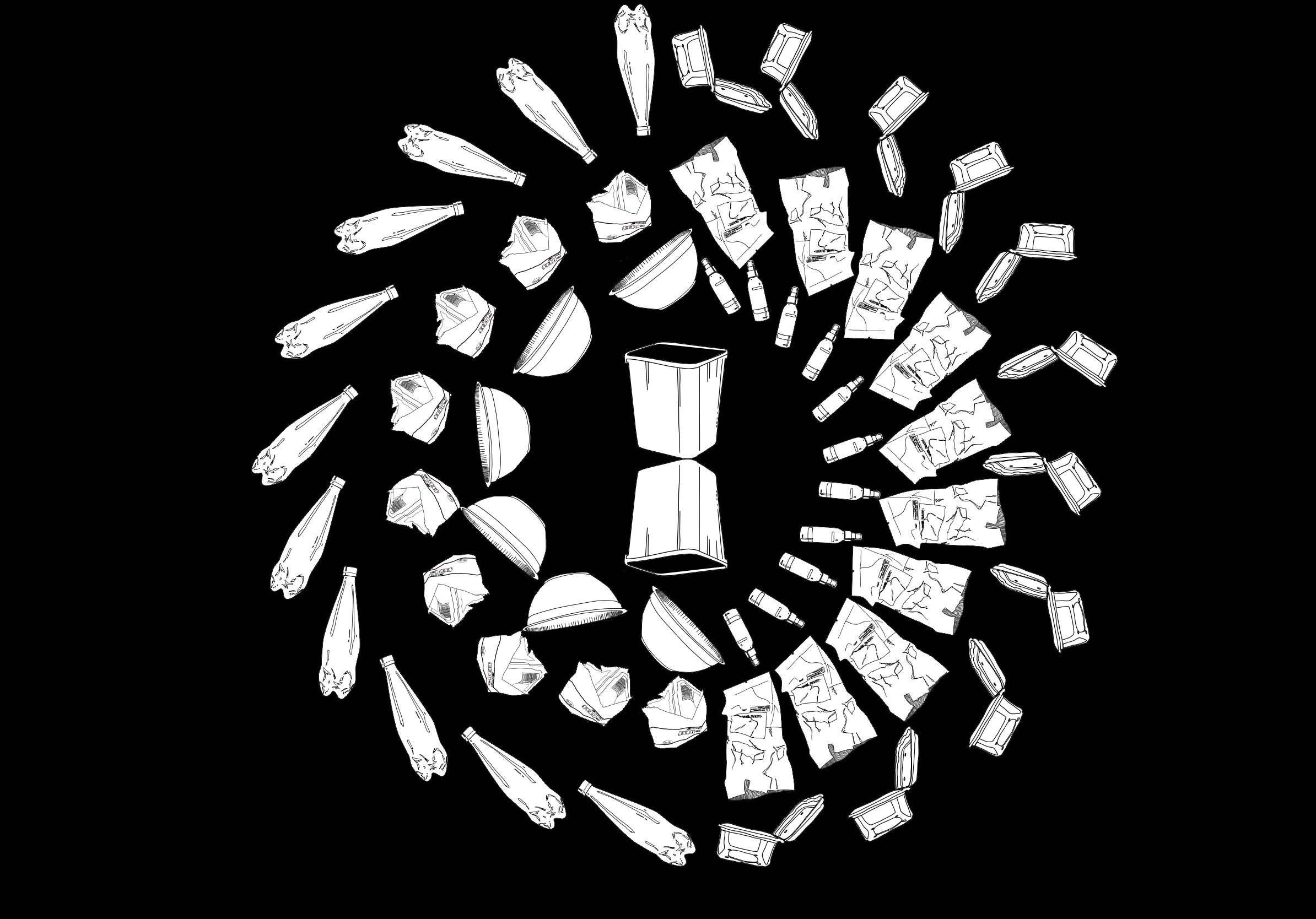E
The Inversion

The Inversion grew out of a virtual artist residency with MOD. from August - September 2020. Originally conceived as a gallery residency that would explore with visitors the material, temporal and ethical entanglements we share with our everyday objects; due to Covid-19 restrictions these explorations were relocated to the home. Hosting an online open call for people to nominate an object of significance they ‘couldn’t live without,’ several objects were shortlisted for materio-temporal research, including a small, plastic promotional toy in the shape of a dog.

Developed within a domestic space and designed as a ritual that participants would join from their respective homes, The Inversion centres the home rubbish bin as a site of transformative potential. The Inversion asks whether we can reassign plastics from ‘bin’ to ‘kin’ [2] proposing an intervention and new ritual practice by up-ending a bin to create an ‘altar’ that elevates and exalts plastic discards, rather than concealing and ‘binning’ them.
The Inversion ultimately asks us to reconsider disposability, recognise plastic’s enduring qualities, and ask what implications the mass production, use and fast disposal of plastics has for Earth inhabitants and descendents.

Image by Ana Tiquia
Artist: Ana Tiquia
Commissioned by MOD.
[1] Davis, Heather. "Toxic Progeny: The Plastisphere and Other Queer Futures." philoSOPHIA 5, no. 2 (2015): 231-50.
[2] Haraway, Donna. Staying with the Trouble: Making Kin in the Cthulucene. Durham and London: Duke University Press, 2016.
Commissioned by MOD.
[1] Davis, Heather. "Toxic Progeny: The Plastisphere and Other Queer Futures." philoSOPHIA 5, no. 2 (2015): 231-50.
[2] Haraway, Donna. Staying with the Trouble: Making Kin in the Cthulucene. Durham and London: Duke University Press, 2016.